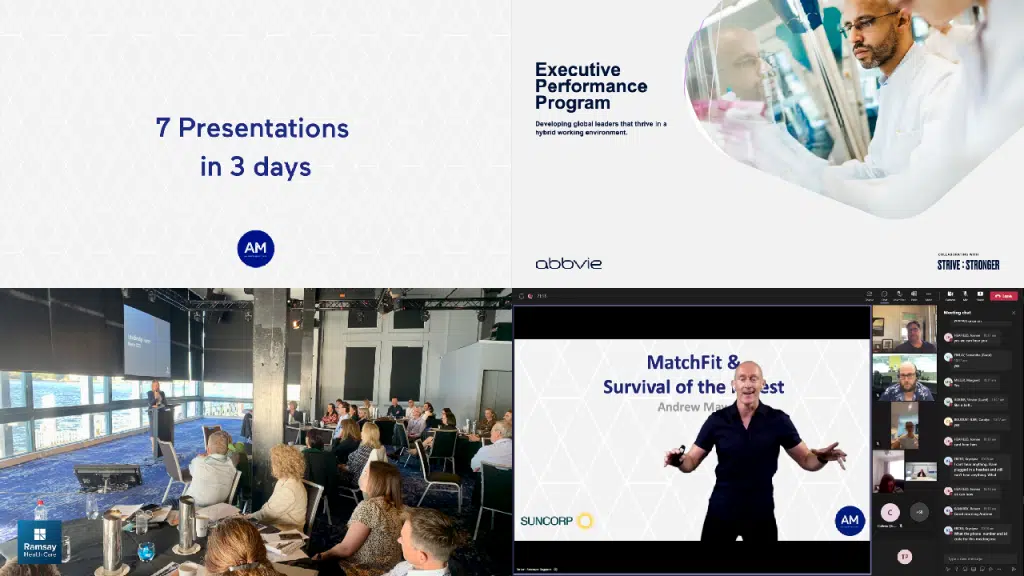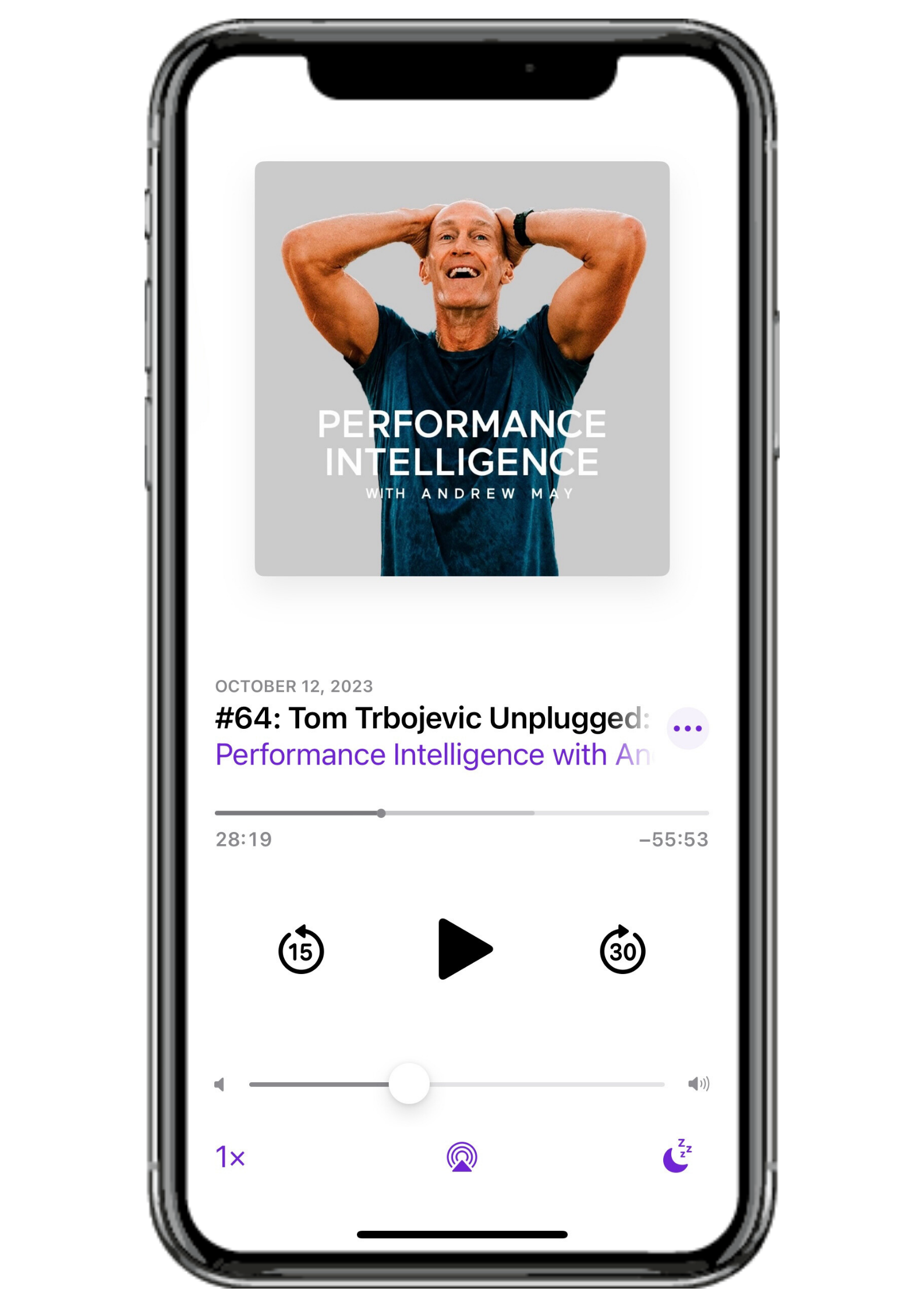How was your 2022?
And let’s go even broader, how was your last decade?
I know we normally ask these types of questions in early January, but this year I wanted to get in early before the business engine room once again becomes transfixed on Piere de Coubertin’s ‘citius, altius, fortius’ for 2023 and beyond.
It seems every conversation I’ve had in in the past few weeks has gone a little like this:
Me: “How’s it going?”
Corporate: “I just can’t wait to finish the year and have a break. I’m literally imping to the end of the year.”
Me (being the Performance Guy): “Yeah, it’s been a big year and I’m looking forward to a great break in January and am excited about getting into 2023”.
Me (what I’m really thinking): “Aaaargh, I feel like I’ve just run into a bus as well. Bring – on – summer – break”.
It’s normal for people to feel tired and fatigued in the weeks leading up to Christmas. And if you’ve had a few challenges throughout the year at work, or in your personal life, or with relationships, or with your children or extended family, or if people you know have passed away (a friend recently commented ‘now I’m 45, I seem to be going to a lot more funerals than weddings’), there is a valid reason why you’re feeling a bit flat.
Looking Back, Looking Forward
The process of looking back and reflecting on the year that has been is an important part in being grateful for what you have achieved; acknowledging challenges and triumphs along the way: and tapping into the proven benefits of self-reflection, personal growth and fulfillment.
Setting goals in life is a lot like driving a car. The majority of time needs to be future-focused and looking ahead (out the front windscreen) but it is also important to periodically check the rear view mirror (to remind ourselves of the achievements we have made and where we have come from).
The Benefits of Reflecting
Back in 1933 philosopher John Dewey wrote about the importance of reflection and how it bridges the gap between experience and self-awareness. Dewey observed how serious and careful consideration leads to personal growth.
The majority of research in the area of goal achievement has focussed on the process of setting and achieving goals. A relatively new field called ‘accomplishment focus’ is now illustrating the benefits of reviewing and reflecting on goals that have been achieved.
A 2008 study in the Journal of Personal and Social Psychology found students who regularly reviewed their achievements had higher levels of future goal commitment and intrinsic motivation towards achieving future goals (meaning they are setting and achieving goals for the right reasons, not extrinsic reasons like purely to impress other people). Reflecting on past goals and achievements appears to help us set and achieve future goals.
The Lost Art of Self-Reflection
Reflect upon your blessings of which every man and woman has plenty; not on your lost misfortunes, of which we all have some. Charles Dickens
The pace at which we work and live, information overload and our collective addiction to technology means every space in our diaries is filled. We behave like renovators putting Selly’s No More Gaps into every hole we find, smoothing it out until every moment is covered. Busy. Always doing something.
We have lost the art of self-reflection. In reflective thought the idea is to think about your core beliefs, assumptions, knowledge and values and draw connections with other parts of your life. Psychologist Daniel Kahneman, in his book Thinking fast and slow talks about the popularisation of brain science and how slow thinking (or reflective thinking) is negatively correlated when compared to fast thinking (which is how the majority of people react in the new world of work, with or decisions and thoughts dictated by email and constant connectivity and turnaround times and customer expectations).
With this science (not the musical lyrics as a back drop), the last few years I have got into the practice, both for myself and for my coaching clients, of going through a practice of self-reflection, specific to the year that has just been. I now divide the rear view mirror activity into two parts – part 1 is the 6 Core Pillars and part 2 we dive a little deeper with Self Reflective Awareness.
Part 1: The 7 Core Pillars – How was 2022?
The 7 Core Pillars (plus I’ve added a bonus pillar this year focusing on recovery) are the foundations that hold that thing we call ‘our lives’ together and include:
#1 Work/Career:
What has worked well in your professional life?
What achievements did you have at work? (new products, sales targets, business wins, staff success, other)
What did you learn in your career this year?
What lessons did you learn when things didn’t go so well?
#2 Learning and Development:
What new skill/s did you learn this year?
What did you approach differently in either your personal or professional life?
What did you want to learn this year that you didn’t?
#3 Financial:
What wins did you have with your finances?
What improvements can you make to your financial position?
#4 Health and Fitness:
What wins have you had with your health and fitness?
How well did you balance stress and recovery?
#5 Family & Relationships:
What are you happy about in your personal life?
What positives have you drawn out of your relationships?
#6 Hobbies, Passion and Fun:
What did you do that was fun, spontaneous and exciting?
Did you engage in regular passionate pursuits/hobbies throughout the year?
#7 Community & Spiritual
What did you do to connect with your wider community/neighbourhood?
How did you explore or expand your spirituality?
#8 Recharge
What did you do to stay energised and fresh?
Which recovery activities did you regularly deploy?
Part 2: Self-Reflective Awareness
Part 2 involves digging a little deeper and thinking about how the previous 12 months/decade has aligned with your values and purpose/vision in life (first tip: If you are unclear about either of these, a great 2023 goal is to spend some time, or get a coach to help you, clarify your personal values and your purpose/vision).
In an article in Psychology Today, Greg Henriques comments “self-reflective awareness (SRA) is a ‘meta-cognitive’ ability, meaning that it involves thinking about and reflecting on one’s own mental processes. Someone with good SRA is able to generate a narrative of self that is complex, clear, and multifaceted and is able to communicate that narrative in a way that allows others a much better understanding of where they are coming from”.
Healthy self-reflection includes asking the following questions:
- Am I clear on my personal purpose/vision?
- Am I connected to my purpose?
- Am I connected to meaningful relationships, the community and to nature?
- Am I expressing my talents (signature strengths) fully?
- Do I feel fully engaged in my career?
- Am I performing at my peak capacity?
- Am I contributing to society/making a difference to the world?
- Do I have a positive/optimistic view on life?
- Do I feel fulfilled in my personal and professional life?
Slowing down and really thinking about these questions forces you to reflect and take stock of what has happened in the major areas of your life. Part 2 illustrates whether you are connected to what is really important and goes deeper below the surface.
It is way too easy to become obsessed with soaring faster, higher and stronger that we forget to celebrate our successes and achievements along the way.
Whether you are pleasantly surprised or not, this activity provides real feedback on achievements and helps to reassess and plan for the coming 12 months.
Andrew May





